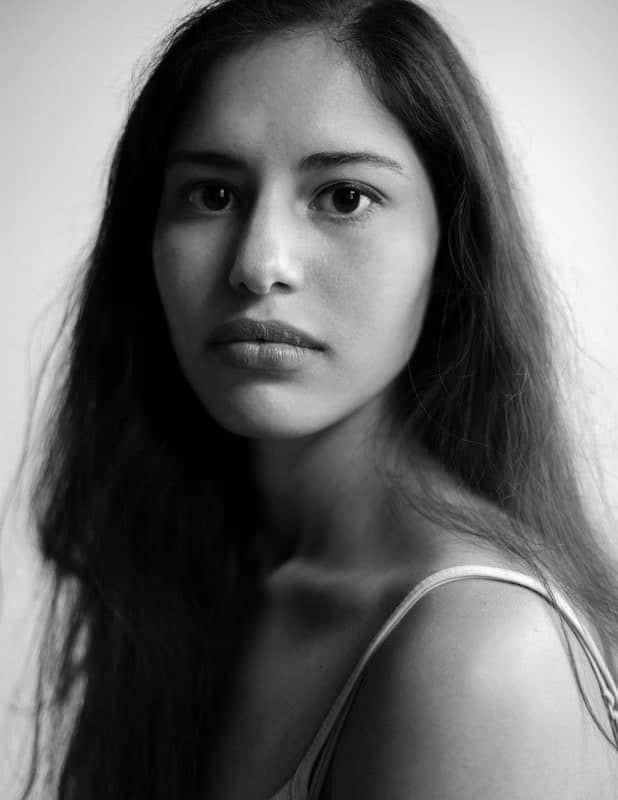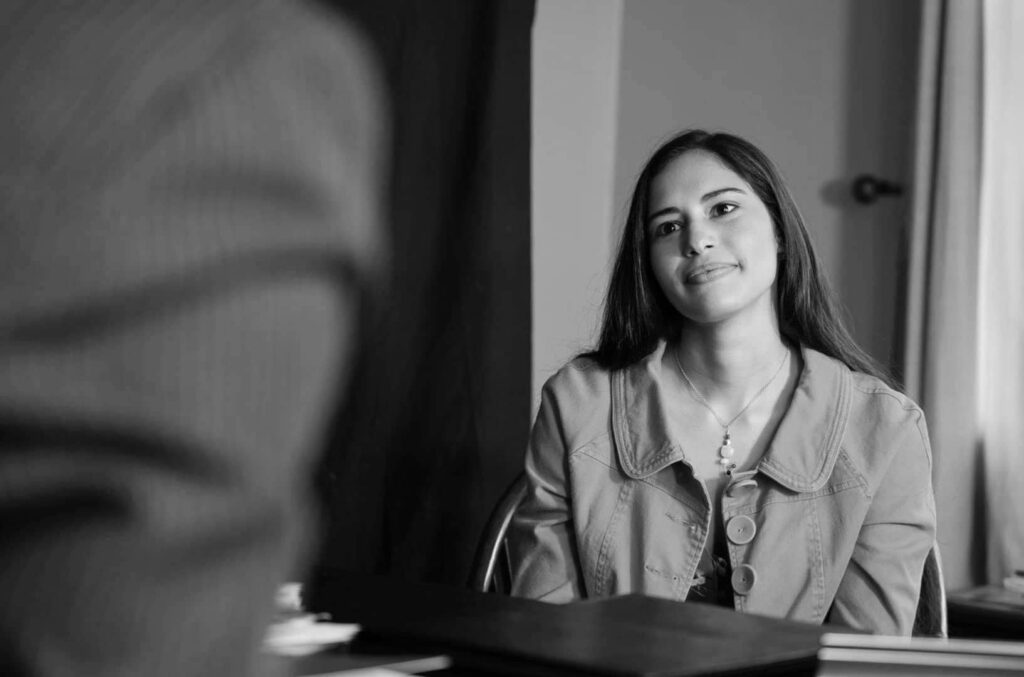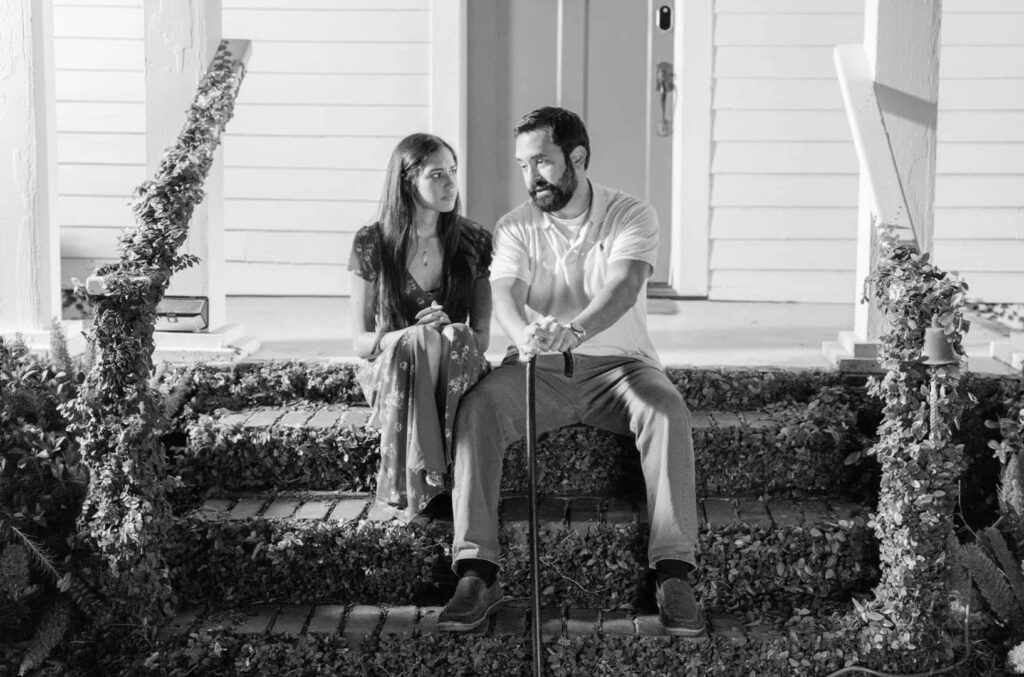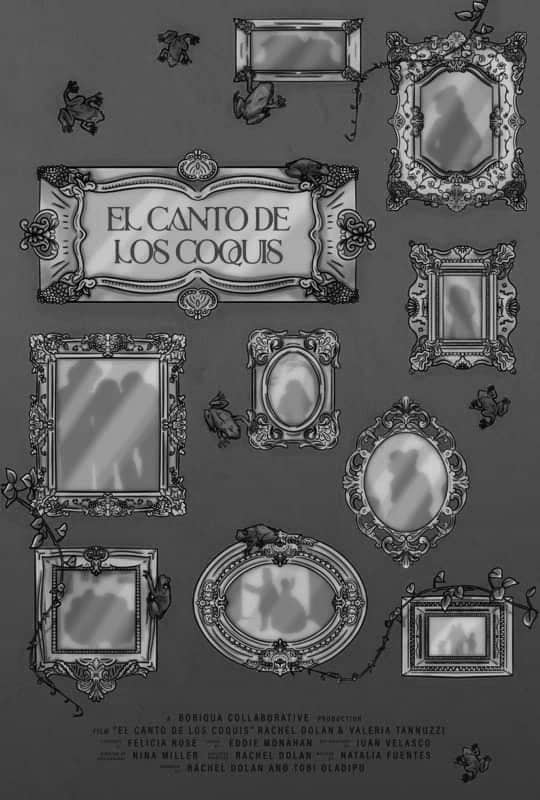
-Who is Rachel Dolan?
Rachel Dolan is a Latina theatre artist, actor, writer, and filmmaker. Her love of theatre
and film was sparked at an early age, a passion she knew she could not live without. As a
theatre artist in her local community, she focuses on social justice themes, contributing
to shows which focus heavily on the voices of those that are unheard or historically
ignored. Rachel gained her Bachelor of Arts in Theatre from Temple University in
Philadelphia and most recently acquired her Master of Fine Arts in Performing Arts from
the Savannah College of Art & Design. As an actor and theatre artist, Rachel has an
additional curiosity in all roles in theatre and film, spending time as a theatre apprentice,
and eventually creating her own short film during her graduate program at SCAD.
Creating her short film, El Canto de los Coquis quickly became an opportunity for further
exploration of creativity, craft, and a love letter for Puerto Rico as seen through the eyes
of a Puerto Rican-American woman. Rachel’s love for creating live beings through acting,
reflecting the reality individuals must endure as well as welcoming space for new
perspectives and voices was expounded upon through the creation of her film. She has a
passion for art, empathy, creativity, collaboration, education, and the drive to contribute
to the world in a positive way.

–What inspired you to become a filmmaker?
I absolutely love to write. Writing gives me a sense of peace, an opportunity to process
life into a world of creativity, one in which there is freedom to be our whole selves.
Because of my love of writing, I would often create my own plays, as an actor, my own
monologues and scenes, and my own scripts. The process is exhilarating, in a similar way
acting is. One is bearing their soul, feelings, and emotions for others in hopes that they,
too, feel truly seen in a world where we feel we must hide who we are for safety, from
the pressure of others, or sometimes out of our own fear. The stories that come alive
through writing then have the opportunity to be shared with others, to be felt by an
audience, and exist to promote discussion or education, empathy or understanding. One
of the most important reasons why I became an artist and filmmaker is for others to feel
seen, heard, and to feel less alone. Witnessing a character living through a struggle in
their life or something they cannot see their way out of and eventually overcoming it,
becomes transformative for an audience because we can all identify with the human
condition and a journey in which we are constantly discovering what we need and who
we are. We all have a place in this world, and not only should we share our own unique
perspectives and who we are, but we should also encourage others to do the same. I
created my short film partly because I felt like there was no space for me, struggling with
the complexity and experience of being a Latina and American, but also to communicate
that those who might feel the same way are not alone and that it should be encouraged
to accept all that we are. The other importance for me was that I know what it is to
struggle and to come from a community that does not have the support that they should,
but in that place still lives joy and love and opportunity. If I can dream and create and
continue to rise above obstacles, then I would love to inspire those who also experience
barriers to overcome them.

-Do you think the cinema can bring a change in the society?
I absolutely believe that any form of art, film, theatre, and more can become a catalyst
for change. We have the unique opportunity as artists to impact individuals in ways that
others may not. Artists work in the language of souls, being and living, in that which
cannot be seen but that is felt. Cinema has the opportunity to welcome conversations,
change viewpoints and bring people closer. Cinema is often categorized as
entertainment, but it also has the capacity to educate. We find ourselves more open to
storytelling or experiencing another journey through art, whereas we may not be so
inclined in other facets of life. Many may argue that film is based in fiction, although art
mimics life, even art that may not be so overtly grounded in what we view is normal
reality. Cinema compels us to consider what is beyond our everyday, even when we are
presented with what may be viewed as daily life. Stories are slowed down and viewed on
a larger scale, moment to moment is witnessed which is often glazed over in daily life. In
cinema, moments are not passed, they are savored, and display life being lived,
considered, and felt. I often argue that fact and statistics, although useful, are cold and
unapproachable to many people. Numbers are distant, they can be brushed aside.
However, when one is faced with an individual who may be included in the statistics
discussed, they are humanized. They become someone who reminds us of our mother or
friend, or even ourselves. Change is brought about through feeling and responding,
something cinema will not allow audiences to turn away from. Throughout history,
cinema based in documentaries, narratives, and any type of work has inspired change
whether unearthing truth which has been kept in the dark or asking us to face that which
has remained hidden within ourselves, and it will continue to do so as time moves on.
Cinema inspires, challenges, illuminates, and welcomes individuals to be transformed and
in my opinion, that is the best kind of art there is.

What would you change in the world?
Incredibly, there is an innumerable amount that people have discovered or achieved, but
there also is so much more we are unaware of or have gotten very wrong. So many lives
are being uprooted by countless issues in our world and of course everyone should be
working to better these occurrences. As individuals, we can only help to better things
where we can, making differences in the ways we are able to. Together, we have the
capacity to better living situations on a larger scale and work to ensure that people’s
basic rights and needs are met. Of course, I would love to see a world where people do
not suffer, although it is not the one we live in. However, we can still try to alleviate that
suffering when we are met with it, on whatever scale that may be. People wish to be
seen, heard, understood, loved, included, and valued. In my own life and work I attempt
to meet those needs and feel that if we can individually meet people with kindness, we
can make steps towards positive change. I would also love to see the arts valued for how
they impact people and the world. Funding, education, and excitement about the arts
should be promoted, not stripped away. Not only because art can promote joy or assist in
processing issues in our own lives, but because it fosters empathy which the world needs
more of. If we can better learn to understand, listen, and close the divide between
peoples, we may have a better chance of creating change that is rooted in action.
-Where do you see the film industry going in the next 100 years?
I think the film industry has its problems like any, but it continues to move in the
direction people are calling for. It pushes society forward, even when society may not
want to follow it, but it is what is needed. Artists and filmmakers can often be the most
open minded, and inclusive group of people because we are asked to analyze life, to
listen to what is around us and to invite conversation and collaboration. We are a group
that considers the disciplines of history, technology, anthropology, psychology and more
into an art form that asks us to face what we must and look towards where we wish to
go. I hope, and I believe the industry will continue to become more inclusive to all
individuals, especially those that fall outside of the normative societal view. Technology
and equipment may become even more detailed in extracting true essences of life and I
also believe performances will move in the same vein. Art movements follow life and
world events, and cinema will continue to experience groundbreaking changes as will
people and the world. I do have hope that all things will move towards a better future
and that cinema will remain thriving and celebrated and will not only capture these
changes but drive them forward.
